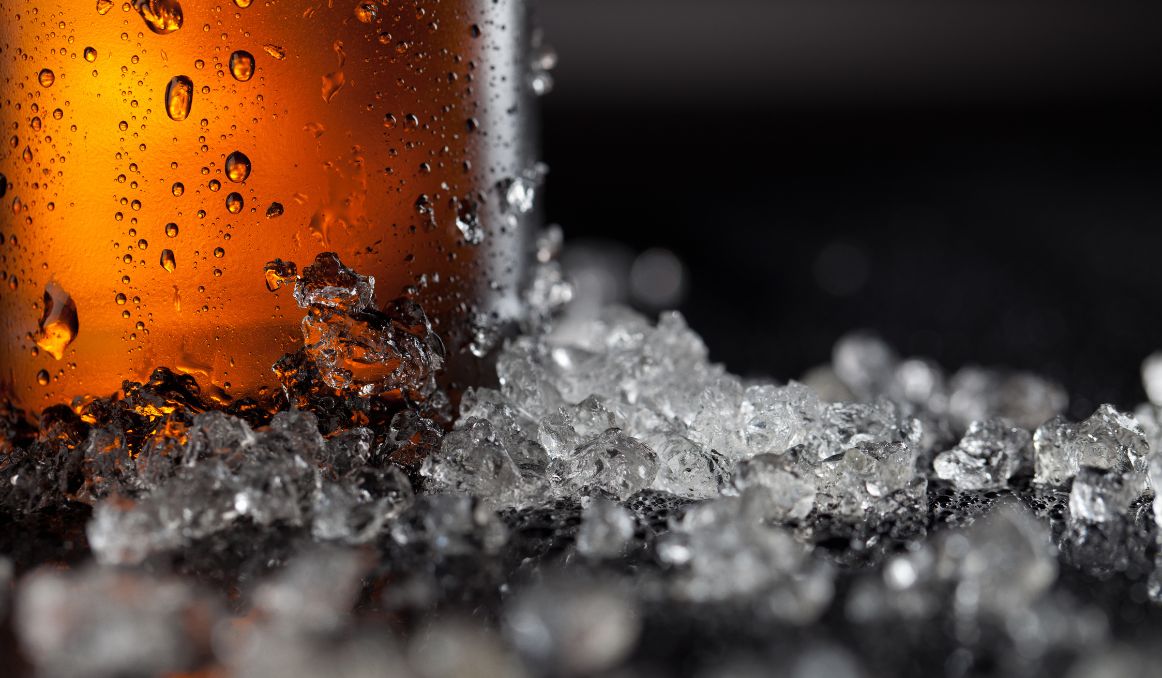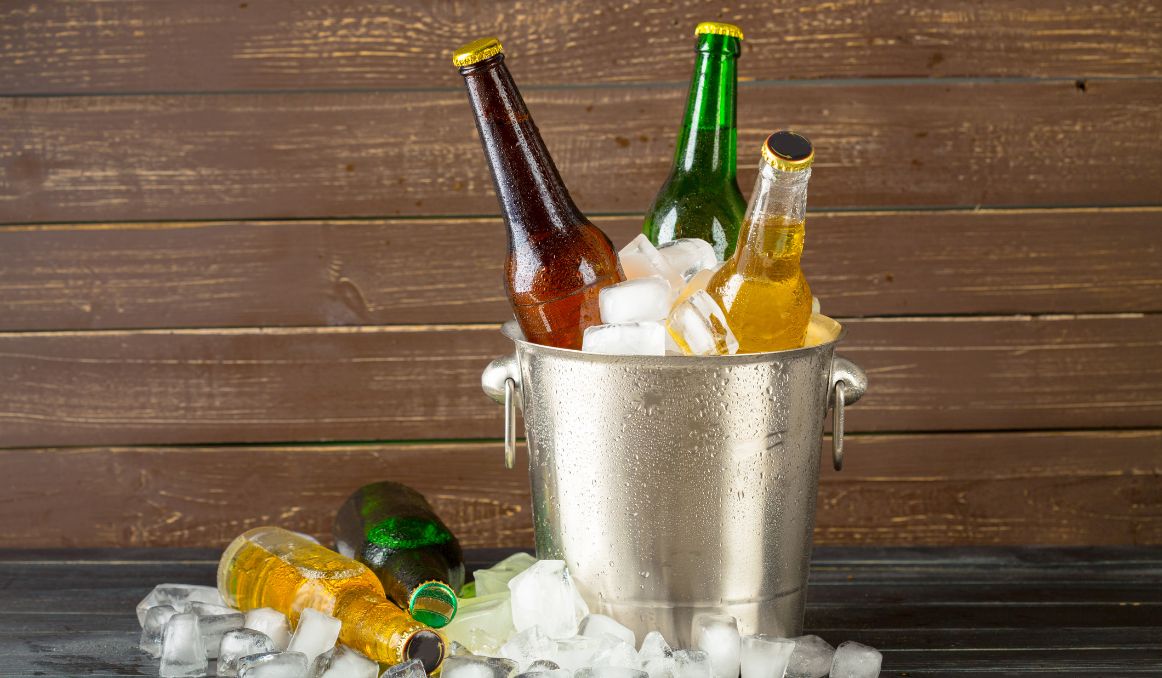Why Don’t You Put Ice in Beer: A Clear Answer
There’s not much wrong you can do with beer, so why don’t you put ice in beer? It’s clear: ice is a big no-no. And the reasons for it go back to ancient times.
Beer in Ancient Times
You see, beer is not like other fermented beverages.
Wine is likely the oldest of all fermented drinks, and it is made simply.
Grapes are crushed, yeast is attracted to the naturally occurring sugars in the crushed grapes, and it gets to work consuming all those sugars and converting them to alcohol.
And bam. You’ve got wine.
Even cider, a happy accident much like beer, is pretty basic.
Sure, you have to crush and press all the juice from apples or pears. Often, extra spices are added for flavor. But in the end, the yeast will do its job quite nicely with this fresh, ripe fruit juice.

A Complex Process
Beer, on the other hand, is a complex, complicated process, and it was so even thousands of years ago when it was first created.
By a stroke of luck that has created the joy of beer we have today, ale was most likely “invented” by a woman out gathering the grain from her harvest. As woman have long been the primary caretakers of food and drink in the household, it naturally would have been she who was bringing in grain, likely barley.
And just as naturally, she would have been distracted by a child or an animal in need of her attention, and left her collected grain.
Then, imagine a storm struck, and rain came crashing down, falling on the collected grain.
Days later, as the woman emerged to tend to the yard and the surroundings of her home, she would have found the grain, softened by the rain and covered in water that was now actively fizzing and bubbling.
She did not know, of course, what we know, that the bubbling and fizzing was the active yeast excited about the sugars in that grain.
The yeast were fermenting what sugars they could access in that grain, converting them to alcohol and carbon dioxide, creating a lightly alcoholic, fizzy drink.
This woman would never have wasted good grain and rain water, so she would have turned the softened grain to bread dough, now rising with all that carbon dioxide, creating a softer, lighter, fluffier bread than people were used to at the time.
She would have served that water, in small amounts, of course, to her family. And as the family found the slightly euphoric effect, and the grainy, yeasty flavor of this new beverage delightful, ale was born.
For hundreds of years, even thousands, then, women, men, families, and then the nobility and churches, perfected the process of brewing ale.
But all along, it followed something similar to the following:
Grow and harvest grain, usually barley, but sometimes wheat; roast, or kiln the grain (roasting the grain converts the starches in the grain to sugars); crack the grain open to expose those sugars; boil the grain and steep it in fresh water for several hours.
Now you have what is called “wort.”
Then the wort must be exposed to yeast, at which point the yeast will get busy converting all those delicious sugars in the wort to alcohol and carbon dioxide.
The big difference between beer and wine or cider then is a single ingredient – water.
Water and Nutrition in Beer
Beer is roughly 93% water.
Along with the water, beer is also high in the same nutrients that the grain contains, namely B vitamins and potassium, plus you get the added benefits of the fermentation process, which has a probiotic effect. Probiotics are excellent for gut health.
For this reason, ale was used in place of water at family meals. Most families did not think to roast their grains before cracking, boiling, and steeping them to make the ale, so the resulting beverage would have been low in alcohol.
But there would have been just enough alcohol to kill any contaminants in the water that could make children and the rest of the family sick. It was the perfect solution to hydration and nutrition, a factor that undoubtedly saved many lives over thousands of years, both from starvation and malnutrition as well as from toxins in water.
It was only many generations later that beer became an alcoholic beverage to stop and have at a pub, or something bottled or canned for sea voyages or Sunday afternoon football games.
No Ice in Beer

So now we come to the answer.
We don’t put ice in beer because beer is water. It is, for all intents and purposes, lightly flavored, alcoholic water.
If you add ice, it almost immediately kills the flavor, texture, and aroma of the beer. It waters the beer down so much, and so quickly, that it destroys the entire experience.
Do not put ice in beer.
If you are desperate to have an ice cold beer, you can simply pop your beer in the freezer and within 15 or 20 minutes your beer will be the perfect temperature.
But beware! Do not leave your beer for too long in the freezer, or it will freeze, separate all that water form the alcohol, kill the carbonation, and you will be left with a beer slurpy. Not as great as it sounds.
If you really want to add extra oomph to the cold beer experience, pop a thick walled glass in the freezer at the same time, and then pour that ice cold beer into the glass after the 20 minute wait.
It will be an experience to rave to all your friends about, as opposed to one that ruins your night with watered down beer.
Cheers!
Passionate about the beer and/or wine making process? So are we! If you’re interested in finding out how you can use our technology to control fermentation and monitor your yeast, save work hours and improve the cost-efficiency of your business, drop us a line at [email protected] or check out our product pages:


